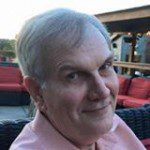I asked Quaker teacher and student talk a bit about her work and Parker Palmer. Enjoy.
By Jaimie Mudd
A cool early morning breeze greets me with a gentle kiss during my morning walk this September morning. For those of us living in the Sonoran Desert region of the US, this moment of cool signals the last days of summer heat and the welcome autumn season.
This is also the start of academic school year for everyone in education. I’ll begin a graduate program, and a niece living in Tucson, a middle school math teacher, has begun yet another year living into her love of teaching. What happened week 1? She was scolded by her headmistress for playful behavior in front of journalists who came to showcase the school.
Another niece in Phoenix sent her bright and spirited twins off to first grade. What happened on Day 1? A note from that teacher instructing my niece to immediately teach her children to listen. These twins conspired to escape the structures of their new environment and remain outside playing- a very serious crime indeed. I cringed while listening to these stories of violations of lively spirits. Of course, I must pause and own up that I am a kindred free spirit so am sympathetic to expressions of creative alternatives to straight lines.
My first response was, “Bless this mess!” How soon people in our education structures rush to impose control rather than foster relationships. Well intentioned leaders, teachers or trainers, likely feeling the need to succeed, project fear and anxiety into the container meant to foster wonder and risk taking in order take the intellectual and emotional journey as human beings. The fear and anxiety replicate a soul killing culture so pervasive today that would have us become human Doings rather than human Beings.
How might our classrooms or training rooms better encourage disciplined minds and open curiosity? I have been on both sides of this exchange and surely wished for a better avenue to be both in relationship and able to achieve results in teaching and learning. In practical terms this means that the person, who is the teacher, meets the person, who is the learner, in a classroom that honors the personhood of each. In this place of respect comes the willingness to risk, to become vulnerable and to enter into the paradox of a bounded disciplined space inviting open exploration into both history and innovation. In other words to create meaning and to learn.
Parker Palmer relates that is through embracing paradox in order to enable wholeness. I wonder what the youngers might be able to teach their elders about school if the elders could risk listening. In fact I have been around elders willing to pause and in that moment witnessed a movement to consider, connect and collaborate with children and colleagues. When this occurs the organization and institution changes, transforms….for the better.
Parker notes the following:
This does not mean we must abandon institutions. In fact, when we live by the soul’s imperatives, we gain the courage to serve institutions more faithfully, to help them resist their tendency to default on their own missions.
Parker Palmer, A Hidden Wholeness: The Journey Toward an Undivided Life, 2009, Jossey Bass.
The question is how do we make this change?
Eldered by our Youngers
The more dividedness we perceive in each other, the less safe and sane we feel. Every day as we interact with family, friends, acquaintances, and strangers, we ask ourselves, “Is this person the same on the inside as he or she seems to be on the outside?” Parker Palmer, 2009
My desert home presents an endless delight in living paradox. Shadow and Light play across a land that seems parched and yet is teeming with life. Newly arrived in this desert community, I was sitting amongst and other Quakers listening to a teacher who brought such gentle, compassionate and funny presence enabling laughter and tears. We were a Friends community struggling with our form of Sunday worship and silence- too much, not enough?
Our young Quakers complained that the older Friends were talking too much during silent Worship. This was experienced as noise rather than ministry. The request was for our community to come to an understanding of what we are to do when we come together each Sunday. Much discussion and periods of silent worship took place during a weekend retreat where all, young and old, sat together as Friends.
When we all could see one another as teachers journeying together we discovered more tenderness and we listened from a place deep within our hearts. This wise teacher modeled for us the Quaker value of listening to our inward teacher. Parker Palmer has noted that we “teach from the root of identity.”
The paradox in education is that we teach much through honoring the soul that offers life giving renewal. Taking the time to see and hear one another, posing open, honest questions that generate from a region deep within our authentic selves, we can hold conversations. These can be brief or lengthy explorations. These explorations might invite, for example, little people to coming inside to wide open spaces of the life of mind – as great a playground as any. They might even enable school administrators to play and dance in front of the media – that would get the word out about the joy of learning!!!
Jaimie Mudd is Executive and Life Coach as well as a Courage and Renewal Facilitator prepared through the Center for Courage and Renewal. Her work with Parker Palmer, author of Courage to Teach and Hidden Wholeness – The Journey Towards an Undivided Life informs the very heart of each retreat. A Quaker, Jaimie is now studying for her Master of Divinity degree at the Earlham School of Religion.














